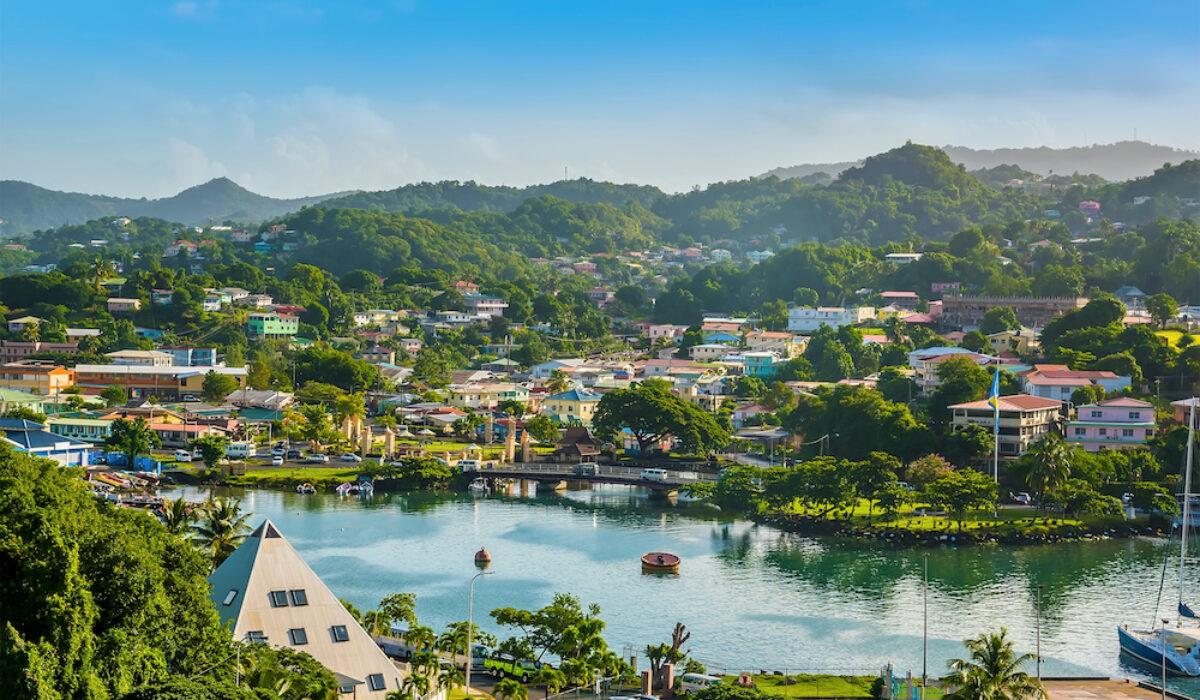The Foreign Direct Investment Landscape in St. Lucia: A Path Forward
St. Lucia, a picturesque island nation in the Caribbean, has long been a magnet for foreign direct investment (FDI) thanks to its strategic initiatives aimed at economic growth. This pursuit, while presenting a tapestry of outcomes, offers a promising horizon for high-net-worth individuals and global business investors seeking lucrative opportunities in a burgeoning market.
Tourism: The Jewel in the Crown
Tourism stands as the linchpin of St. Lucia’s economic framework, consistently attracting substantial FDI. The island’s allure, characterized by its idyllic beaches, lush landscapes, and vibrant cultural tapestry, has enticed international investors to develop an array of high-end resorts, hotels, and related infrastructure. Esteemed global hotel chains such as Sandals and Marriott have anchored their presence here, infusing capital and expertise that fortify St. Lucia’s position as a premier tourist destination.
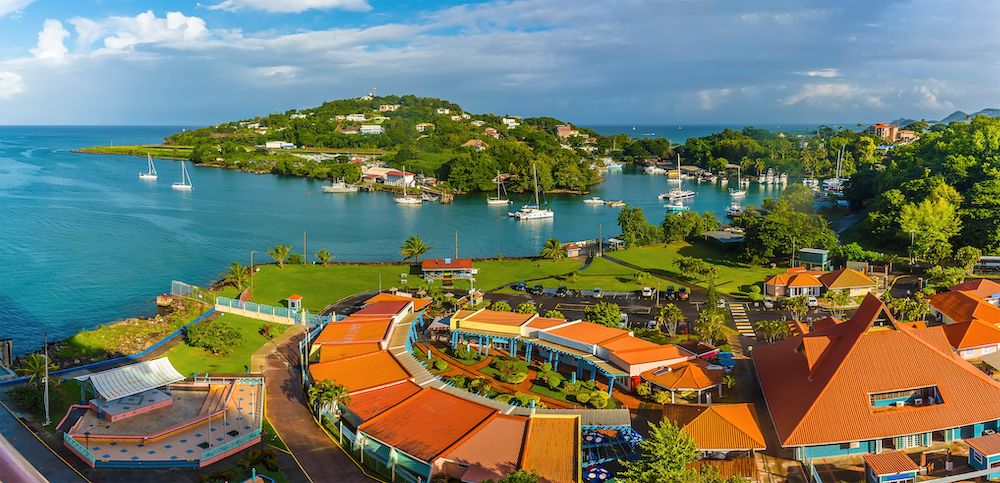
The tourism sector not only generates direct employment but also stimulates ancillary industries, creating a ripple effect across the economy. Investments in this sector are poised to expand, driven by rising global travel demand and St. Lucia’s ongoing efforts to enhance its tourism offerings through sustainable practices and luxury experiences. Notably, eco-tourism and adventure tourism are gaining traction, with investments flowing into boutique resorts and unique travel experiences that capitalize on the island’s natural assets.
Real Estate: A Growing Market
In tandem with tourism, the real estate sector in St. Lucia has experienced significant growth, driven by both foreign investors and expatriates seeking a piece of paradise. The demand for luxury villas, beachfront properties, and gated communities has surged, with investors capitalizing on the island’s natural beauty and favourable climate.
Real estate development has been particularly robust in areas like Rodney Bay, Cap Estate, and Marigot Bay, where high-end properties cater to discerning buyers looking for second homes or investment opportunities. The Citizenship by Investment Program (CIP) has further fuelled this growth, offering investors residency and potential citizenship in exchange for significant real estate investments. This program has not only attracted capital but also contributed to the development of high-quality infrastructure and amenities, enhancing St. Lucia’s appeal as a destination for affluent individuals.
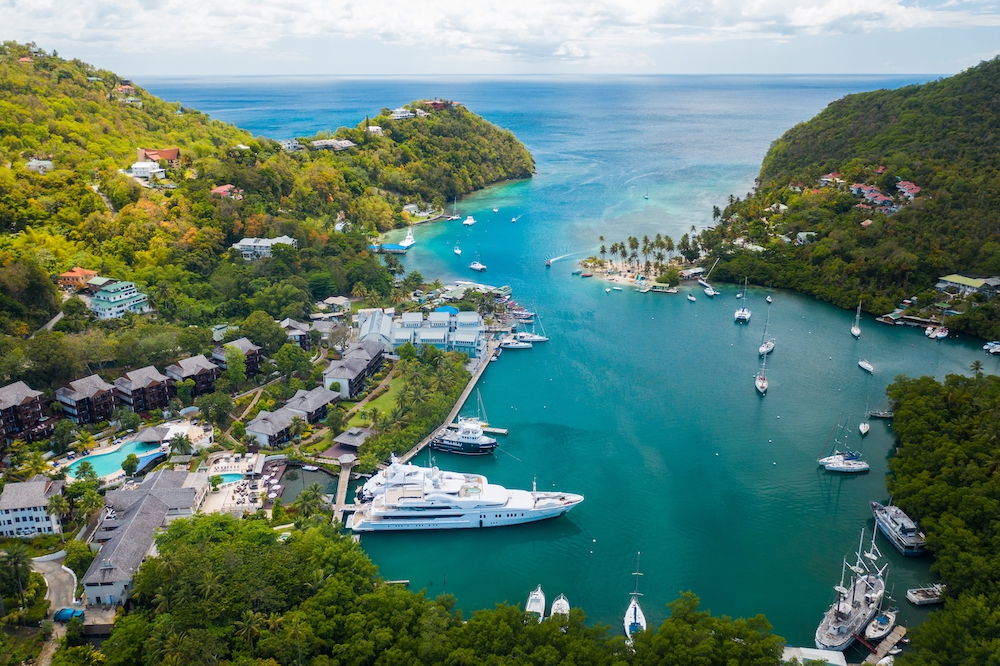
Manufacturing and Export-Oriented Industries: A Strategic Pivot
Beyond tourism, St. Lucia has made strides in attracting FDI into its manufacturing and export-oriented sectors. Through trade agreements like the Caribbean Basin Initiative (CBI) and the CARICOM Single Market and Economy (CSME), the island enjoys preferential access to substantial markets, including the United States and the broader Caribbean region. These agreements incentivize foreign investors to establish operations in industries such as apparel, electronics, and agro-processing.
However, the manufacturing sector faces headwinds, notably from the erosion of trade preferences and stiff competition from low-cost producers elsewhere. Despite these challenges, the sector remains a critical area for diversification. Strategic investments and policy adjustments could rejuvenate this sector, aligning it with global supply chains and emerging market needs.
Business Process Outsourcing (BPO): An Emerging Sector
St. Lucia is increasingly positioning itself as a viable destination for Business Process Outsourcing (BPO). The island offers a stable political environment, a well-educated English-speaking workforce, and improving telecommunications infrastructure, making it an attractive location for outsourcing services such as customer support, IT services, and back-office operations.
The government has been proactive in promoting the BPO sector, offering incentives such as tax holidays and training grants to attract global BPO firms. The presence of reliable telecommunications infrastructure and a growing pool of skilled labor further bolsters the island’s potential in this sector. As global companies seek cost-effective yet high-quality outsourcing destinations, St. Lucia’s BPO industry is poised for significant growth, offering new employment opportunities and diversifying the economic base.
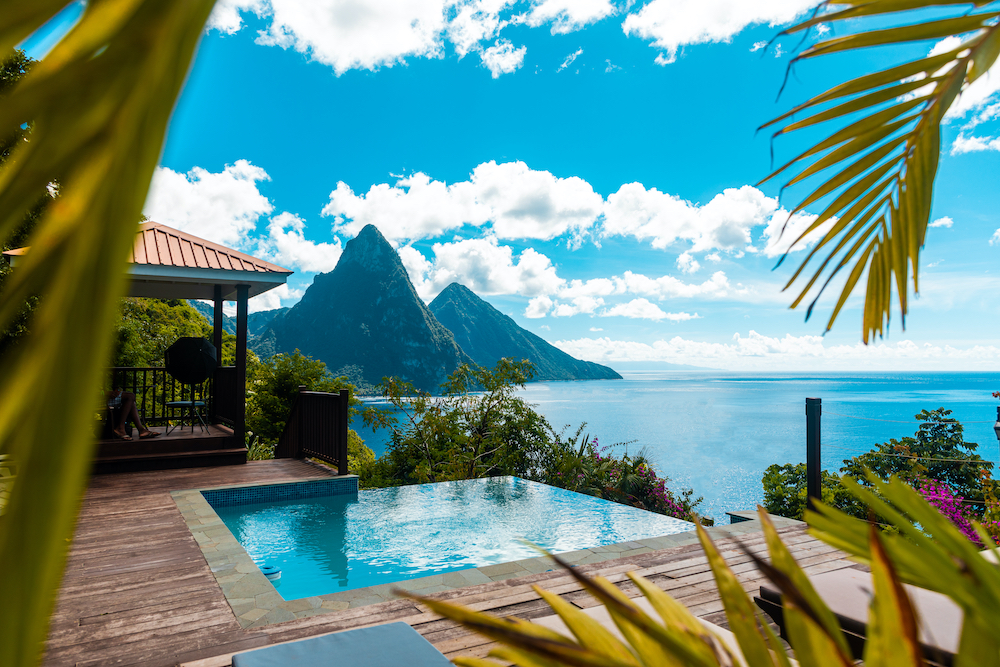
Navigating Challenges, Harnessing Opportunities
St. Lucia’s journey to becoming an FDI haven is not without its hurdles. The island’s small domestic market, finite natural resources, and susceptibility to natural disasters can be daunting for potential investors. Moreover, global economic perturbations, such as the financial crisis and the COVID-19 pandemic, have intermittently disrupted FDI inflows.
To counter these obstacles, St. Lucia has enacted a suite of incentives designed to lure foreign investors. These include tax holidays, duty-free importation of machinery and equipment, and the creation of free trade zones. The government has also prioritized infrastructure development, human capital enhancement, and fostering a business-friendly regulatory environment.
Future Prospects: Diversification and Innovation
Looking ahead, St. Lucia is well-positioned to broaden its FDI landscape. The island’s strategic geographical location and membership in regional economic blocs like the OECS and CARICOM present compelling advantages. These can be leveraged to attract investment in burgeoning sectors such as information and communication technology (ICT), renewable energy, and financial services.
The liberalization of trade and the deregulation of key sectors like telecommunications are poised to unlock new investment avenues. Enhancing the regulatory framework, strengthening intellectual property protections, and cultivating a skilled workforce are pivotal steps that will attract high-calibre investments, driving sustainable economic growth and job creation.
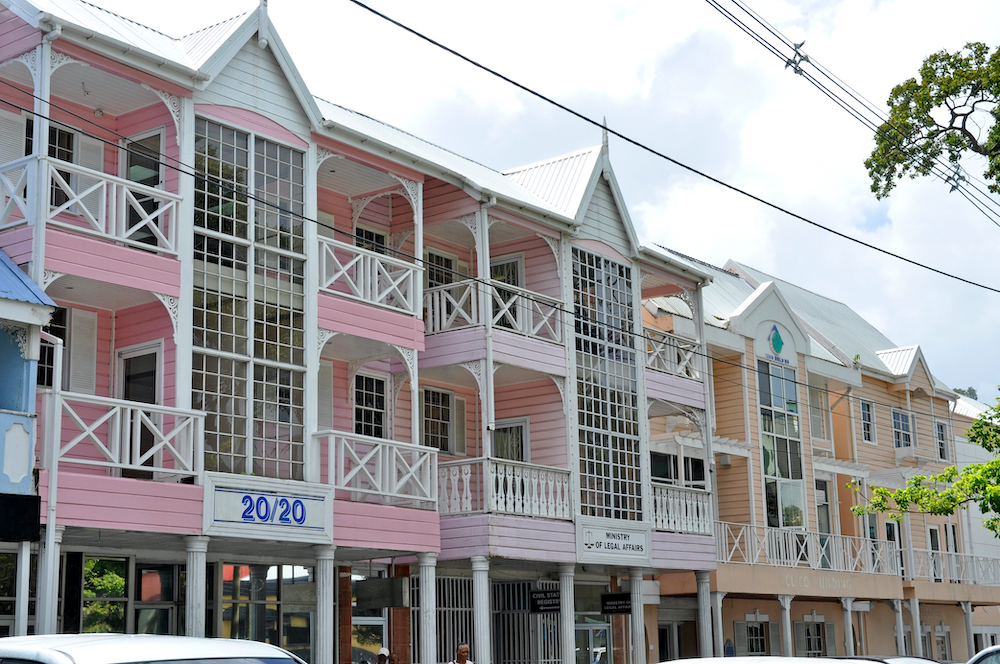
A Comprehensive Strategy for Sustainable Growth
In conclusion, St. Lucia’s journey to becoming a robust FDI destination is a work in progress, marked by significant achievements and substantial potential. While tourism remains a dominant force, diversifying the investment landscape is crucial for long-term economic resilience. High-net-worth individuals and global investors have a unique opportunity to participate in St. Lucia’s growth story, benefiting from a strategic location, favourable trade agreements, and a welcoming investment climate.
A forward-looking strategy that addresses existing barriers, promotes economic diversification, and fosters an enabling business environment will be instrumental. By focusing on these areas, St. Lucia can unlock the full potential of FDI, driving its economic development and securing its place as a beacon of opportunity in the Caribbean.
The Allure of St. Lucia: A Haven for Investors
For discerning investors, St. Lucia offers a unique blend of opportunities. The island’s commitment to improving infrastructure, its strategic initiatives to diversify the economy, and its embrace of sustainable development practices make it an attractive destination. The ongoing investment in renewable energy projects and the burgeoning ICT sector are particularly noteworthy, reflecting St. Lucia’s adaptive and forward-thinking economic policies.
The presence of globally recognized hotel brands and the steady influx of tourists underscore the island’s enduring appeal. Furthermore, the government’s proactive stance in creating a conducive business environment, exemplified by tax incentives and regulatory reforms, enhances St. Lucia’s attractiveness as an investment destination.
Conclusion: A Promising Horizon
St. Lucia stands at the cusp of a transformative era, with FDI playing a pivotal role in shaping its economic future. The island’s strategic efforts to attract and sustain foreign investments, coupled with its natural allure and progressive policies, create a fertile ground for high-net-worth individuals and global business investors. As St. Lucia continues to navigate its challenges and harness its opportunities, the island is poised to emerge as a beacon of economic dynamism and a premier investment destination in the Caribbean.

